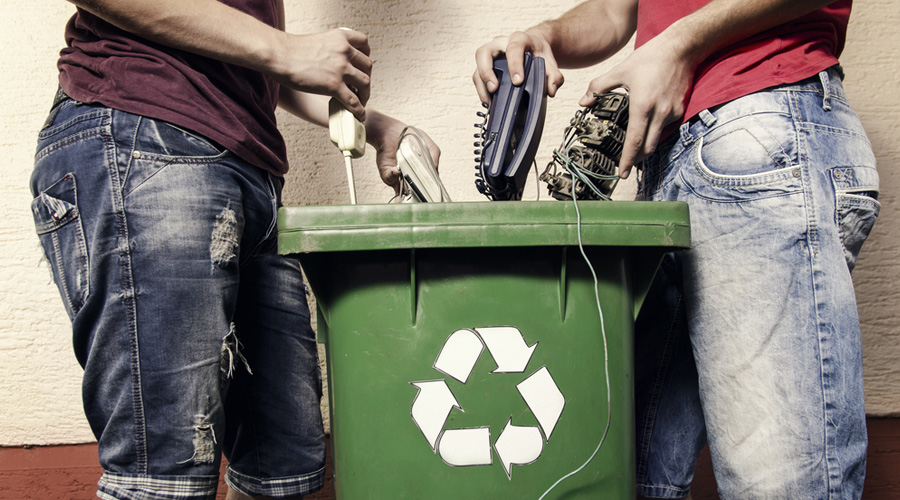Webel, the state’s nodal agency for the development of the electronics and IT industry, is working on a holistic plan to manage electronic waste (e-waste) in Bengal, including exploring the setting up of a factory to process the waste.
E-waste has been defined as electrical and electronic equipment, whole or in part discarded as waste by the consumer or bulk consumer as well as rejected from manufacturing, refurbishment and repair processes.
It includes electronic products that are either unwanted, not working or nearing the end of their useful life.
Electronic devices such as computers, cell phones, home appliances and office and medical equipment among others are part of e-waste. They also include toxic components such as beryllium, lead and mercury.
With the state generating over 41.8 tonnes of e-waste every year and the number expected to go up in the coming years, Webel is working closely with the state pollution control board and private agencies on collecting e-waste from corporate entities, segregation of recyclable and non-recyclable waste and its disposal.
A process has been laid out whereby private agencies empanelled by the pollution control board are being utilised to collect e-waste from corporate entities.
Besides, e-waste bins have been set up at various IT parks in the state.
An industry source said that Webel’s future plan includes setting up of a factory to manage e-waste and it could be commissioned by next year on the outskirts of the city. The private sector has also urged the government to create recycling units within the state and take steps to organise the informal sector.
At present, a large part of the e-waste collection is through the informal sector.
A Webel report of 2021 has revealed that there are different sets of e-waste collection markets at different locations in the state.
Mobiles, computers, and printers generally come to the Chandni market.
Large appliances such as AC, refrigerators, and washing machines go to Rifle Range road, Bondel gate road and Bajarangabali in Howrah district.
Most of the shopkeepers in these markets have contracts with big electronic shops for the collection of e-waste.
Sources also said that the pollution control board is working on expanding the scope of items that can be classified and processed as e-waste.
The present list of around 70-80 items could be expanded to over 100 by April.










